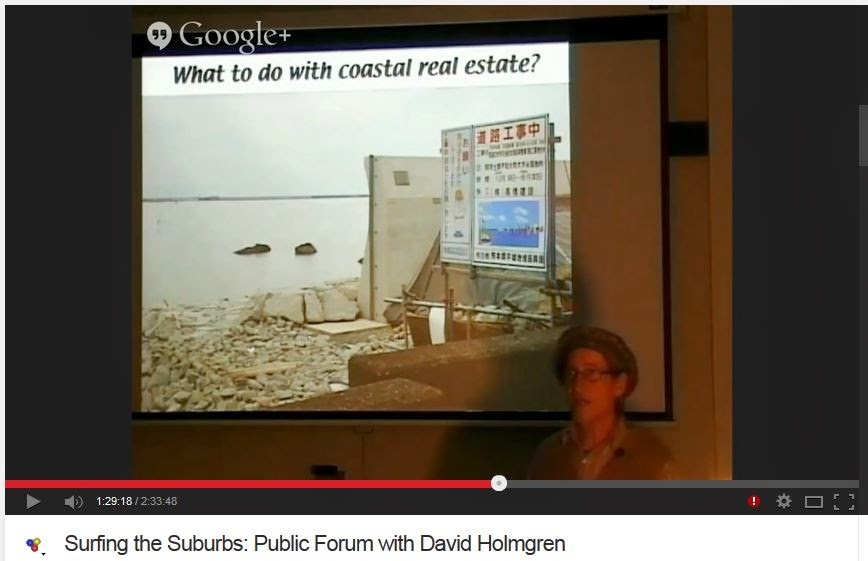'Historically, the mitigation of coastal storms has focused on the use of
intensive structural solutions — single-purpose engineered barriers
designed to protect against often inadequately modeled storms. Once
these engineering feats realize their massive physical form, the public
develops an attitude of complacency and invincibility against storm
events. They are “behind the wall”. The submitting team references this
phenomenon as the “moral hazard” where a false sense of security results
in more coastal development, subpar construction standards, inadequate
policy, and greater public risk.'
Coastal Roulette
Thursday 14 August 2014
Wednesday 6 August 2014
What to do with Coastal Real Estate?
David Holmgren exploring future scenarios: http://youtu.be/PQyw-2V37uw?t=58m
There's more on this topic in the latest John Michael Greer blogpost, Dark Age America: The Rising Ocean, wherein he discusses marine transgression:
'So far, at
least, the vast East Antarctic ice sheet has shown only very modest changes,
and most current estimates suggest that it would take something far more
drastic than the carbon output of our remaining economically accessible fossil
fuel reserves to tip it over into instability; this is a good thing, as East
Antarctica’s ice fields contain enough water to drive sea level up 250 feet or
so. Thus a reasonable estimate for sea
level change over the next five hundred years involves the collapse of the
Greenland and West Antarctic sheets and some modest melting on the edges of the
East Antarctic sheet, raising sea level by something over 50 feet, delivered in
a series of unpredictable bursts divided by long periods of relative stability
or slow change.
Subscribe to:
Posts (Atom)

